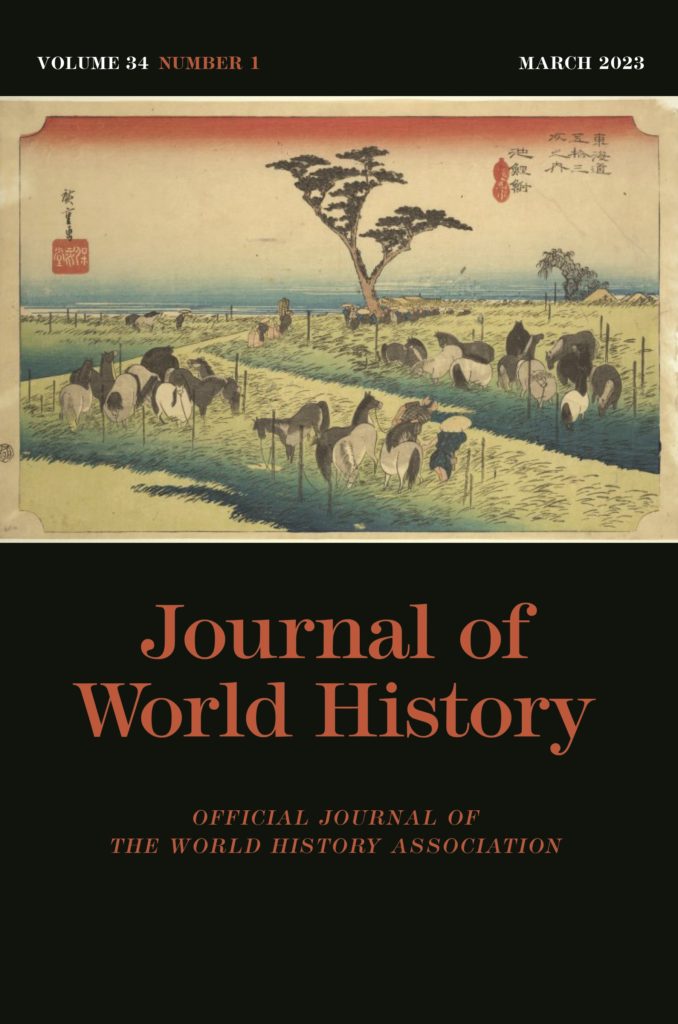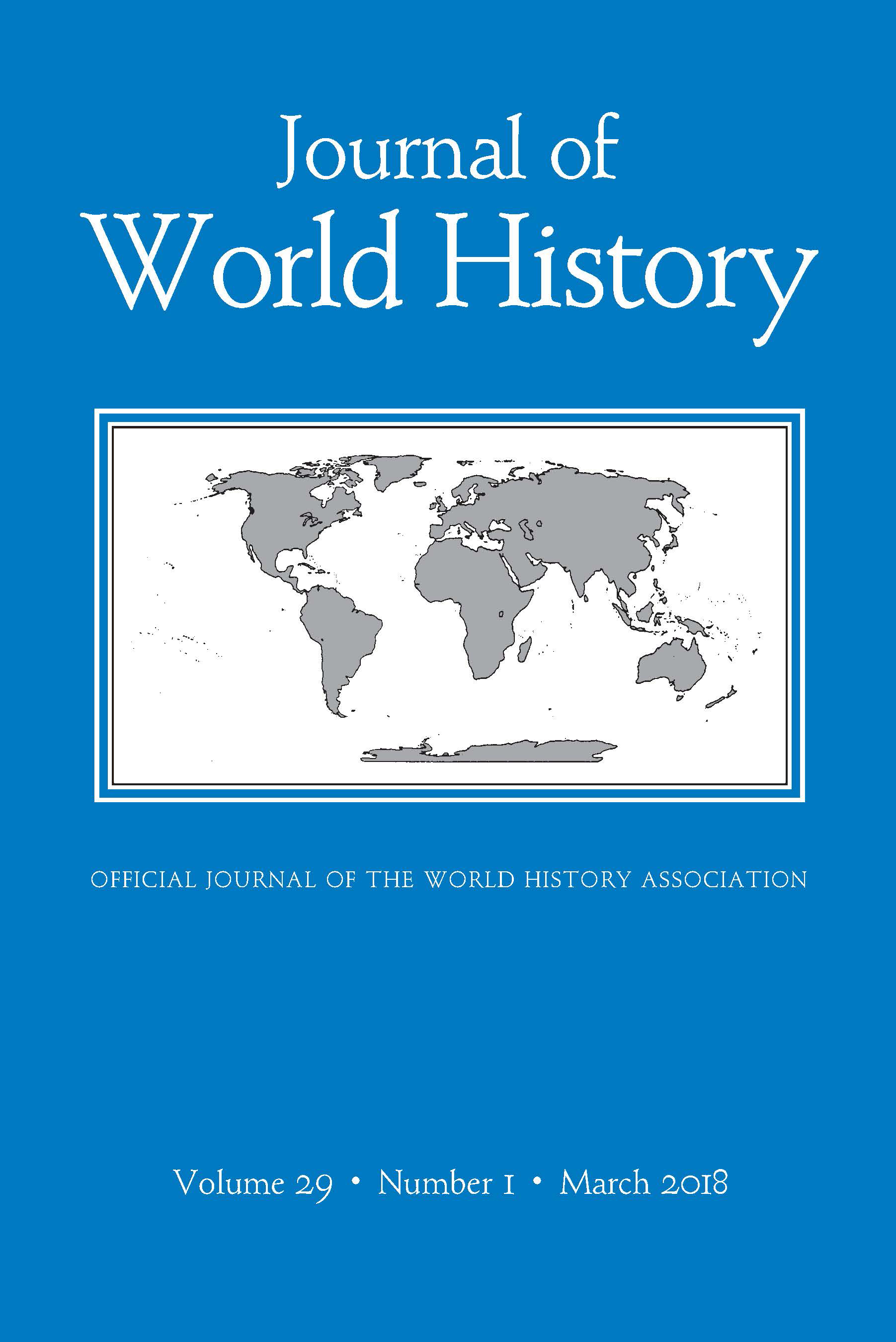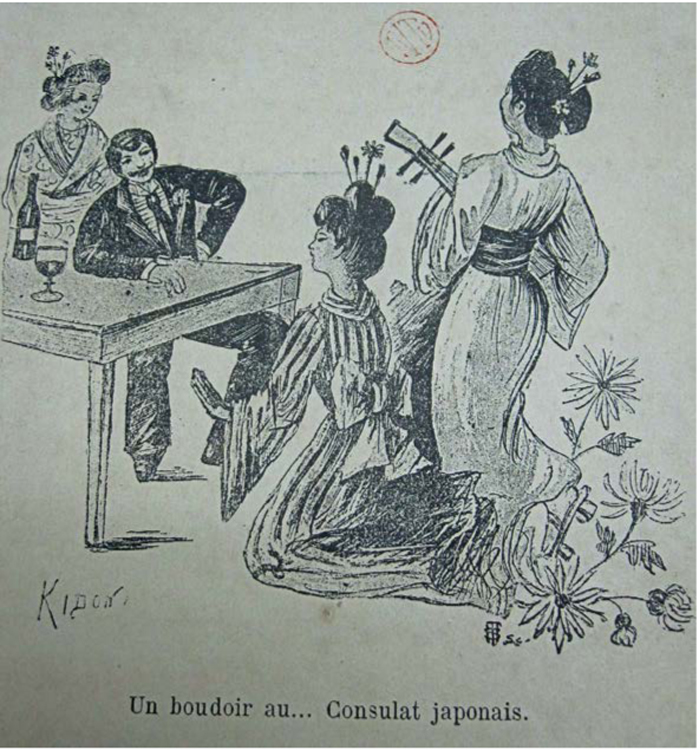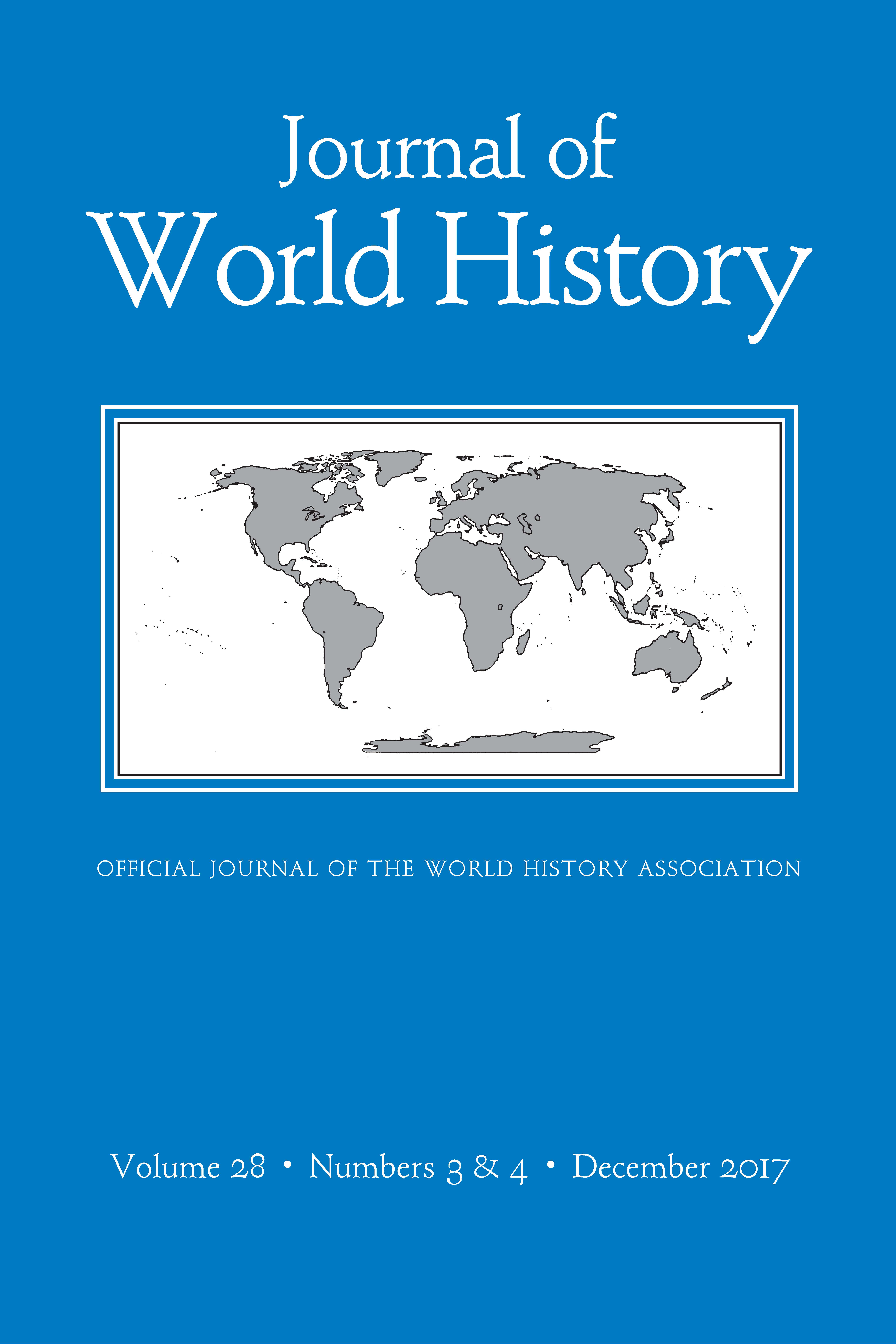The World History Association will be hosting its annual meeting at the University of Pittsburgh’s World History Center from June 22 to 24, on the theme “ENERGIES.” The Journal of World History offers this accompanying special collection, “Transnational Approaches to the History of Race of Racism,” free on the Project MUSE platform through September 30. Select World History titles will also be 30% off from July 1 through Sept 30, 2023.
The special issue “Transnational Approaches to the History of Race and Racism” draws together some of the journal’s most frequently cited and downloaded material alongside some less well-known contributions. Together, these articles compare historic roles, debates, and struggles in relation to today’s trials and tribulations with race consciousness.

Editor Matthew P. Romaniello talks about this Special Issue in excerpts of his introduction, “Race and Racism beyond National Borders”:
Assembling a special collection of previously published articles has created an opportunity to engage with the legacy of Journal of World History. As with the first of these issues four years ago, I took the opportunity to review our “most downloaded” articles list from Project Muse. It has changed more than I expected – not only from the arrival of newly-published articles but also from articles published decades ago that have gained new prominence. One of those served as the launching point for this collection, Matthew Pratt Guterl’s “The New Race Consciousness: Race, Nation, and Empire in American Culture, 1910-1925,” a “top 10” article for 2022, though it was first published in 1999.
The renewed interest in race and racism is hardly unique to Journal of World History, much less global audiences in this particular historical moment. However, looking to JWH for an article on racism in America may not be the first stop on anyone’s pursuit of more information on the topic. For much of its history, JWH only published a few articles with American content.
Research on race and racism, settler colonialism and anticolonial rhetoric, cosmopolitanism and “Orientalism,” involving global empires and modern nations, has regularly appeared throughout the journal’s history. The benefits of pursuing these topics through a transnational lens broadens our discussions and hopefully encourages more thoughtful engagement with their presence in our daily lives. The articles included in this collection highlight these themes in a variety of regions, offering original perspectives on the entangled debates of race and racism globally.
It should not come as any surprise to a reader of Journal of World History that the history of colonialism is fully entangled with racial hierarchies, much less that colonial and neocolonial policies imposed racialized systems, whether it imposed segregation or achieved assimilation. Neither supported equality. Nor did cosmopolitan lives, those people who crossed borders and interacted with foreign cultures, necessarily demonstrate greater understanding or compassion for diversity. This special collection does highlight that these challenges are not unique or specific to the United States, and, perhaps, we might inform our ongoing discussions of diversity, equality, and inclusion by considering other viewpoints and histories beyond our own borders.

Transnational Approaches to the History of Race of Racism
Table of Contents
“Race and Racism beyond National Borders”
Matthew P. Rominello
The Imperialism of Cultural Assimilation: Sir George Grey’s Encounter with the Maori and the Xhosa, 1845-1868.
James O. Gump
Gobineau on China: Race Theory, the ‘Yellow Peril,’ and the Critique of Modernity.
Gregory Blue
The New Race Consciousness: Race, Nation, and Empire in American Culture, 1910-1925.
Matthew Pratt Guterl
An Orientalist in the Orient: Richard Garbe’s Indian Journey, 1885-86.
Kaushik Bagchi
Jazz and the Evolution of Black American Cosmopolitanism in Interwar Paris.
Rachel Gillett
White Anglo-Saxon Hopes and Black Americans’ Atlantic Dreams: Jack Johnson and the British Boxing Colour Bar.
Theresa Runstedtler
‘Town of God’: Ota Benga, the Batetela Boys, and the Promise of Black America.
Karen Sotiropoulos
Settler Historicism and Anticolonial Rebuttal in the British World, 1880-1920.
Amanda Behm
Students, Sex, and Threatened Solidarity: East African Bodies and Indian Angst, 1955-1970.
Timothy Nicholson
Learn more about the WHA conference here.
The World History Association will host its annual meeting in person, from June 22 to 24, on the theme “ENERGIES.” The Journal of World History offers this digital special issue “Transnational Approaches to the History of Race and Racisms” free on the Project MUSE platform through the end of September 2023. Select World History titles in will also be 30% off July 1 through September 30 with coupon code WHA2023.








